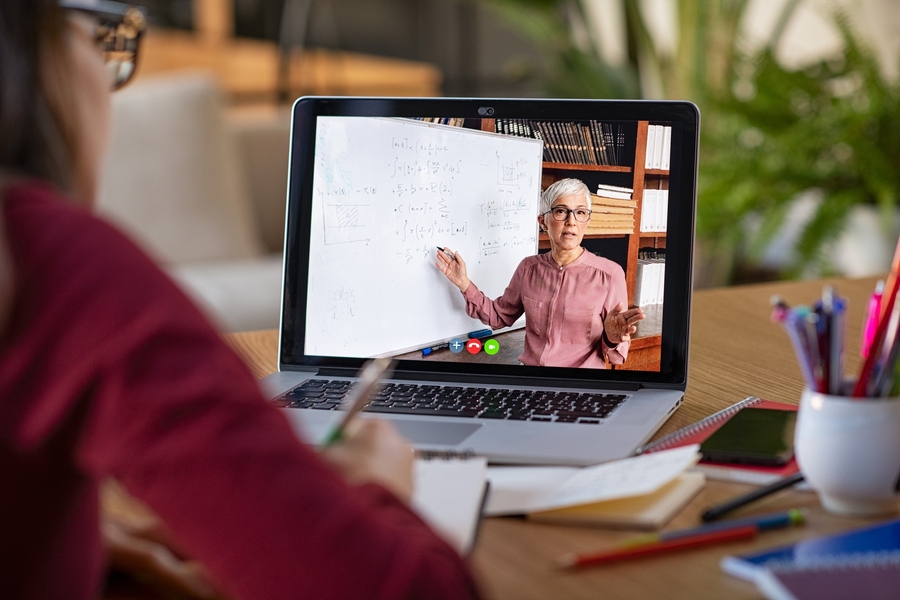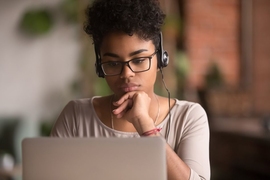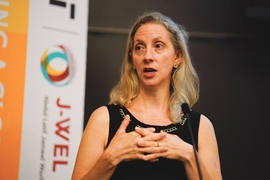In an effort to respond to the Covid-19 pandemic, industries across the globe are retooling their operations. Textile mills are making masks, automobile plants are making respirators, and perfume factories are making hand sanitizer to meet the needs of the United States and the world. Education is scrambling to retool, as well. According to Vijay Kumar, executive director of the MIT Abdul Latif Jameel World Education Lab (J-WEL) and associate dean of open learning, and Eric Klopfer, J-WEL’s faculty advisor for pK-12 and chair of MIT Comparative Media Studies/Writing, the situation is unprecedented, but we are not entirely unprepared. Here, Kumar and Klopfer discuss learning responses to the global education crisis amidst the current pandemic.
Q: What are some key challenges facing K-12 and higher education right now, in terms of online learning?
KUMAR: The sudden conversion from in-person classes to an all-online format has seismically shifted the landscape, practically overnight. This is hard work and essential for the continued progress of the tens of millions of post-secondary students in the U.S., and many more around the world. But the greater challenge arises when we begin to look outward at students in the K-12 public school systems — 50 million in the U.S. alone — many of whom are now at home, and the countless individuals sheltering in place in their homes, anxiously wondering if they have the skills demanded by a plummeting economy that is facing an increasingly long road to recovery. We must retool to reach an audience with highly differentiated educational needs, readiness, and access.
Higher education is also struggling with this wholesale transition to online learning, but at the same time it is forced to reckon with greater financial and operational implications of the pandemic. Fortunately for the greater educational system, however, many institutions of higher education have been ramping up their expertise in digital and remote learning over the past decade and can lend a hand.
KLOPFER: The crisis faced by the K-12 system, where massive numbers of students have been displaced from schools into individual home situations with varying degrees of access to social, emotional, and educational support, has no end in sight. Higher education can and must play an important role in supporting K-12 students and teachers. We must reconfigure some of our operations to support this critical system.
Many of us working at the intersection of K-12 and higher education have often talked about “disrupting” K-12 education, with the benign intention of moving a system stuck in the 19th and early 20th centuries into the present day. But the complexities of this deep-rooted system have made it resistant to change and left it unprepared to manage an instantaneous leap well into the 21st century. Now that this system is thoroughly disrupted we must act to help bring about normalcy and positive change.
Q: How can we best retool online education in this time of crisis?
KLOPFER: We need to listen to the challenges that students and teachers are facing. We need to share our knowledge of teaching and learning online. We need to work with purpose and agility, sharing our existing resources and using the talent that we have to create new ones in partnership with K-12 educators. And we need to think creatively about how we build tools, systems, and partnerships to provide quality online learning to everyone. Making these changes requires new kinds of recognition, resourcing, and organizational structures to be effective.
KUMAR: J-WEL, along with MIT Open Learning as a whole, is working to facilitate this essential transition through activities and resources for capacity building. J-WEL is making available a range of digital resources and is engaging educators, technologists, and policymakers in virtual events to help develop capabilities and capacity to respond to this crisis. A key element of J-WEL’s mission is to work with our partners to mobilize and transform education worldwide for the digital economy. Our efforts including Full STEAM Ahead, an online resource and activity hub, and the multi-week J-WEL Connections virtual event, address topics ranging from curriculum redesign to virtual collaboration and leadership, and are designed to share resources and knowledge with education stakeholders worldwide.
Q: What might the future of online education look like — and what needs to be done to make it successful?
KLOPFER: We know from decades of research on and implementation of digital learning models is that this is not about a transition to a dystopian future where young people interact only with machines. That kind of fear is exactly what prevented earlier adaptation to the digital realm. The importance of the human element in teaching and learning was never in doubt. Indeed, it has become even clearer as we witness how critical teachers are in facilitating learning for a community of diverse learners, and how important peer-to-peer interactions are for learning and social progression.
KUMAR: What we need to aim for is support for teachers to be able to continue in these critical roles, and to learn new skills about facilitating new forms of student learning online, through new digital activities, peer communities, and engaging, enriching learning experiences that are designed to work for all students. We need to create the confidence, the capabilities and the policies for our educators and institutions to be successful in this transformation to a different world for learning.









